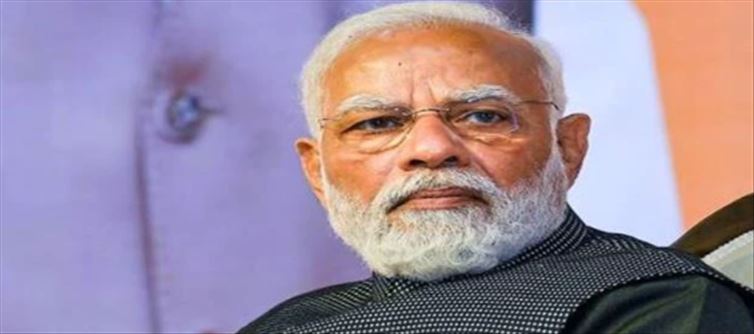Pushpa Telugu Movie Review, Rating
పుష్ప తెలుగు సినిమా రివ్యూ ,రేటింగ్
-
Time Means Nothing to Pennywise — Welcome to Derry’s Ending Changes Everything
-
Censored, Banned, Immortal: India’s First On-Screen Kiss
-
Four Trailers, One Disaster: Marvel’s Doomsday Plan Is Marketing Madness
-
The End of Hawkins Is Here: Stranger Things 5 Vol. 2 Trailer Is Pure Nightmare Fuel
-
Grok AI Sparks New Misinformation Scandal
-
Mozilla's "Open What You Want"
-
Galaxy Z TriFold: First-Ever Triple-Folding Phone!!
-
Common Uses in Cooking and Storage
-
Paro Pinaki Ki Kahani: Arvind Kejriwal Joins Screening!!
-
Hyderabad Cheers Messi’s Arrival!!
-
Messi Forced to Leave Stadium Early!!
-
Abhinav Bindra Reacts to Messi’s India Visit!!
-
Lionel Messi Meets ICC Chairman Jay Shah!!
-
Manu Bhaker Clinches Senior Gold Medal!!
-
Ilaiyaraaja Completes 50 Glorious Years in Music Industry!!
-
Ankita Lokhande Celebrates Fourth Wedding Anniversary!!
-
Tanya Mittal Returns to Gwalior Home!!
-
Mahima Chaudhry Returns to Bollywood!!
-
Daily Horoscope – December 15, 2025:
-
Jewellery Gold Price Crosses ₹1 Lakh per Sovereign
-
Malai Peda: A Traditional Indian Sweet with Rich Taste and Heritage
-
Prime Minister Narendra Modi Embarks on Strategic Three-Nation Tour from Delhi
-
Anuj Sachdeva Attacked in Society??
-
OPCC Issues Official Expulsion Notice
-
“Akhanda 2” OTT Release: Netflix Streaming Date Revealed
-
Vijay’s “Jana Nayagan” Postponed? Thalapathy Fans Left in a Dilemma
-
“Jailer 2” Release Date Locked: Will It Break the Curse?
-
“Akhanda 2” Effect: Will Nandamuri Thaman Step Back from Thaman?
-
The Real Test Begins for “Akhanda 2”!
-
Thaman Concerned About Rising Fan Wars Trend in Tollywood
-
“Dhurandhar” Smashes ₹500 Crore in 10 Days, ₹1000 Crore Within Reach?
-
Patang Trailer Released: Who Will Win the Battle of Love?
-
Prakash Raj Returns to the Big League
-
Champion Gains Major Advantage with Super Hit Songs
-
GV Prakash Shares Glimpses of ‘Happy Raj’ Movie
-
Tamil Nadu Chief Minister to Lay Foundation Stone for Haj House Tomorrow
-
Chief Minister Stalin Comments Carrom Players, Grants Incentives Rewards
-
Raj Kumar Goel Takes CIC Oath
-
Supreme Court Rejects IndiGo PIL?!!
-
One Man, 197 Children: The Fertility Industry’s Dirtiest Secret Exposed
-
BJP Rejects Rigging Claims?!
-
BCCI Pays Zero Tax, India Pays the Price
-
₹90.70 to the Dollar — Historic Rupee Crash, Historic Silence
-
National Captain or Political Billboard? The Day Sunil Chhetri Was Disrespected
-
Soft Glam to Sculpted Chic — Rashmika’s Hairstyles Deserve a Mood Board
-
Three Weeks to Release, Zero Noise: Why Pooja Hegde Is Staying Silent
-
Severance Dethroned: The Show Nobody Saw Coming Is Now #1
-
Pennywise Is Alive Across Time — And Season 2 Just Got Terrifying
-
Robotaxi Is No Longer a Demo — It’s a Business Model
-
Why Karunanidhi Was the One Leader Even MGR Couldn’t Defeat
-
If He’s Really at the Peak, Why Is He Afraid of Competition? The Vijay Illusion Examined
-
What Happened: Why the Producers Were Absent at the Akhanda 2 Success Meet
-
Can DSP Recreate His Vintage Form with Ustaad Bhagat Singh?
-
“Stalin Will Even Surpass Karunanidhi!” – Durai Murugan’s Praise and E.V. Velu’s Instant Reaction
-
“Even if the Sangh Brigade Arrives, They Cannot Do Anything to Tamil Nadu” – Chief Minister Stalin’s Sharp Retort to Amit Shah
-
“Our Opponents Say Udhayanidhi Is the Most Dangerous” – Chief Minister Stalin’s Strong Praise
-
From Amit Shah to Vijay: Udhayanidhi Stalin’s Fiery “Attack” Speech in Tiruvannamalai
-
More Opportunities for Youth in Elections: Udhayanidhi Stalin’s Appeal to the Chief Minister
-
“You Still Don’t Understand My Character” – Chief Minister Stalin Throws a Challenge to Amit Shah
-
“Even if the Sangh Parivar Army Arrives, They Cannot Do Anything in Tamil Nadu”: Chief Minister Stalin’s Strong Assertion
-
She Hugged Her Ex Two Hours Before Her Wedding — Closure or Cheating?
-
No Chaos. No Drama. Just Control: How DMK Youth Wing Set a New Gold Standard
-
20 Days vs 31 Months — One case wrapped up in weeks. Another buried for years.
-
Breaking Doors Is Legal — Until It Knocks on BJP’s Door
-
25 Years Later, Rajinikanth Still Owns the Theatre - Why Padayappa’s Re-Release Hit Harder Than Most New Films
-
Self-Declared, Self-Funded, Self-Serving? The Karaikudi Crisis That Put TVK Vijay in a Trap
-
Is Suryakumar Yadav Playing on Merit — Or on Influence?
-
Messi Looked Frustrated. India Looked Ashamed. How a Messi Event Was Reduced to Political Clownery In Mumbai
-
Unlimited 5G + ₹35,100 AI Free?! Jio’s 2026 Plans Are Borderline Illegal
Empowering 140+ Indians within and abroad with entertainment, infotainment, credible, independent, issue based journalism oriented latest updates on politics, movies.
India Herald Group of Publishers P LIMITED is MediaTech division of prestigious Kotii Group of Technological Ventures R&D P LIMITED, Which is core purposed to be empowering 760+ crore people across 230+ countries of this wonderful world.
India Herald Group of Publishers P LIMITED is New Generation Online Media Group, which brings wealthy knowledge of information from PRINT media and Candid yet Fluid presentation from electronic media together into digital media space for our users.
With the help of dedicated journalists team of about 450+ years experience; India Herald Group of Publishers Private LIMITED is the first and only true digital online publishing media groups to have such a dedicated team. Dream of empowering over 1300 million Indians across the world to stay connected with their mother land [from Web, Phone, Tablet and other Smart devices] multiplies India Herald Group of Publishers Private LIMITED team energy to bring the best into all our media initiatives such as https://www.indiaherald.com





 click and follow Indiaherald WhatsApp channel
click and follow Indiaherald WhatsApp channel